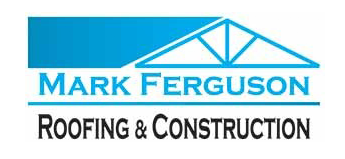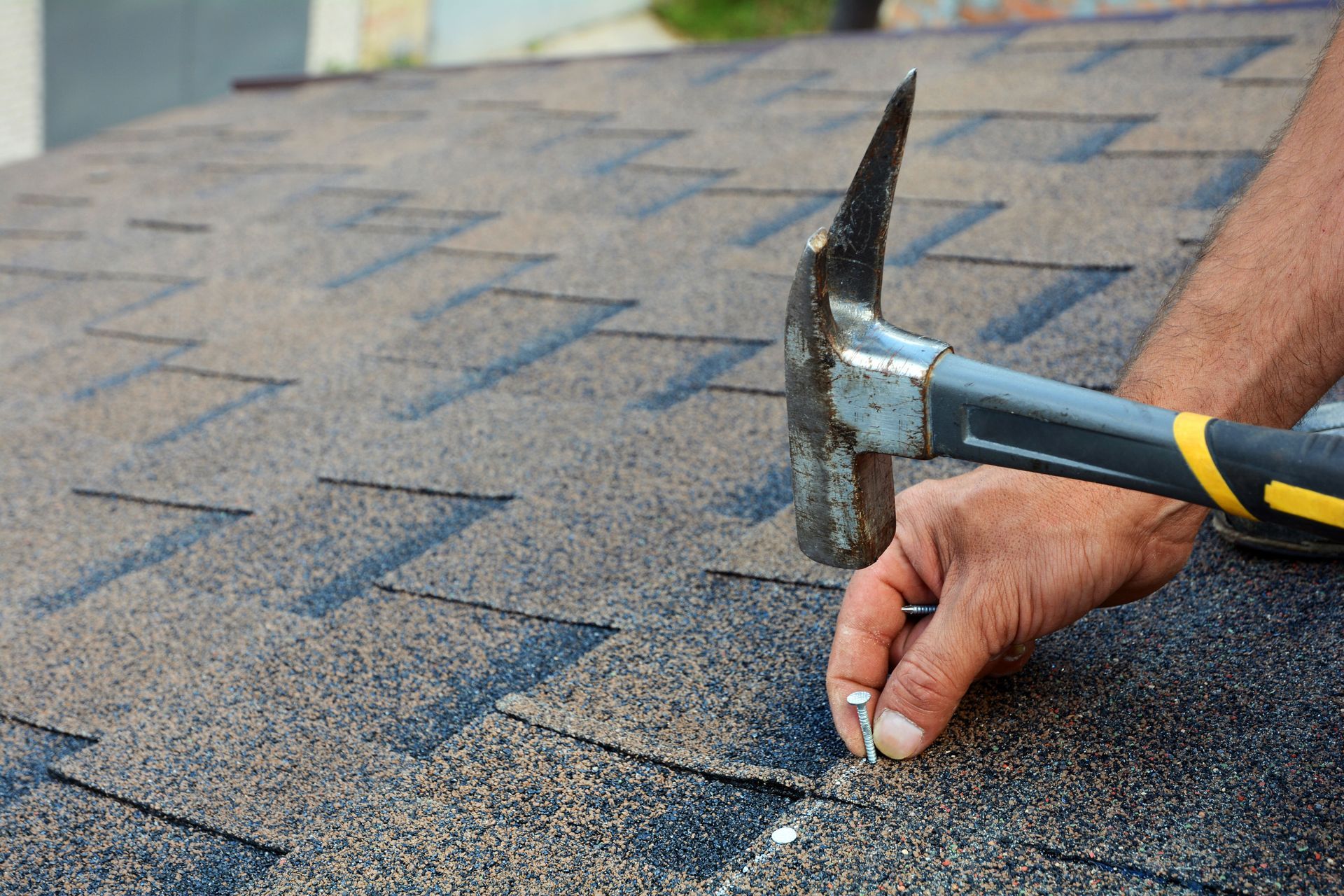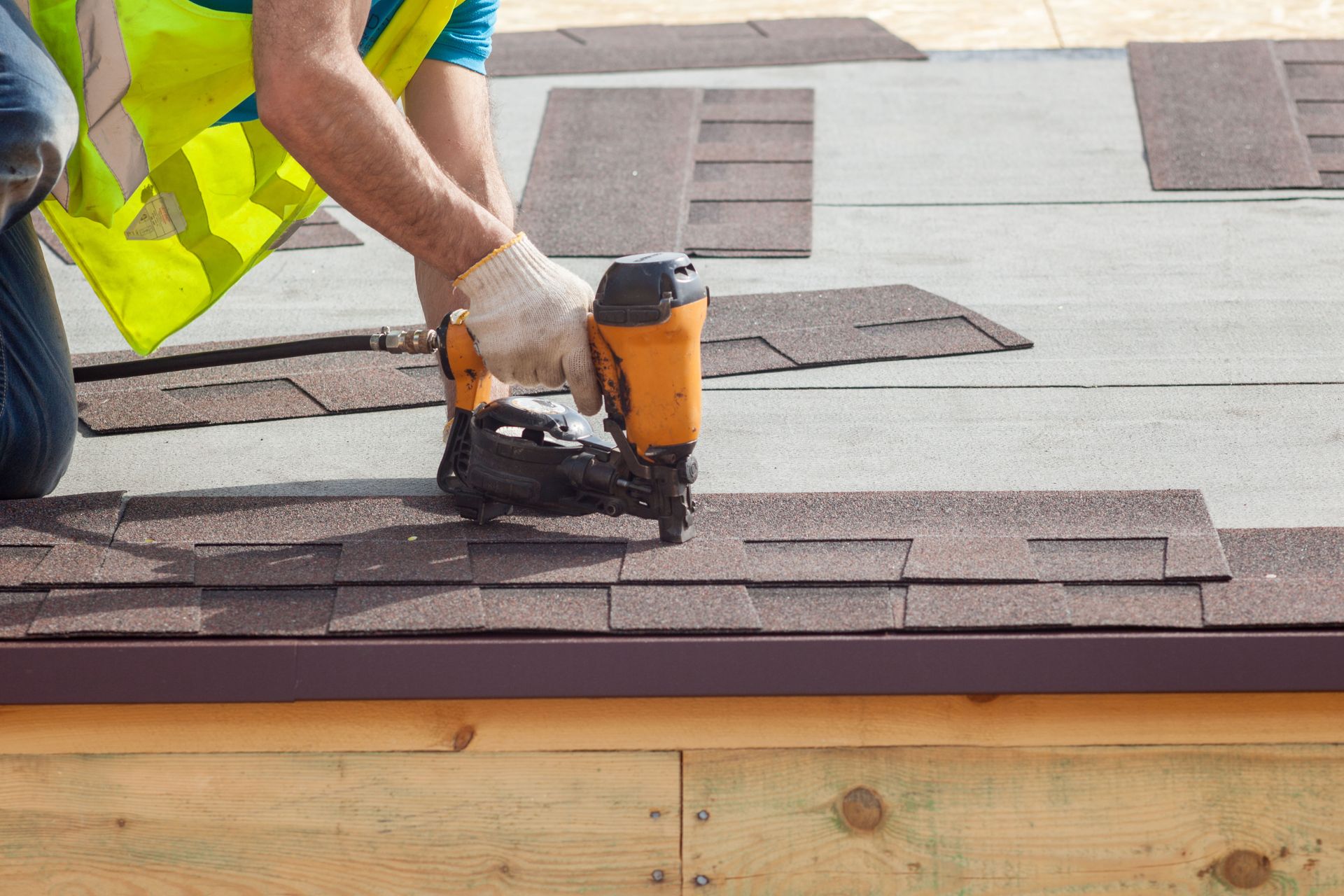October 7, 2025
Your roof is one of the most important components of your home, protecting your family and belongings from the elements. Over time, however, even the most durable roofs experience wear and tear. Homeowners are often faced with a critical decision: should they repair their existing roof or invest in a new roof entirely? This decision can significantly impact your home's safety, energy efficiency, and long-term costs. Understanding the factors that influence this choice can help you make an informed decision that fits your budget and lifestyle.
Understanding Roof Lifespan and Common Issues
Most roofs are designed to last for decades, but their lifespan depends on the material and the conditions they endure. According to the Roofers Guild, the number of homes in North America with asphalt shingle roofs is about 75%. Asphalt shingles are popular due to their affordability, ease of installation, and reliability. However, even asphalt shingles can develop problems such as curling, cracking, or missing pieces over time. Additionally, extreme weather, poor maintenance, and improper installation can accelerate roof deterioration.
When a roof begins to show signs of damage, it's important to assess the severity of the issues that are present. Minor problems such as a few missing shingles, small leaks, or slight discoloration may be suitable for repair. In contrast, extensive damage, widespread leaks, or structural issues may indicate that a full replacement is the most practical solution. Knowing the signs of serious damage can prevent unnecessary expenses and protect your home from further harm.
Knowing When Roof Repair Is the Best Option
Repairing a roof can be an effective and economical solution when damage is localized or relatively minor. For example, if a few shingles have blown off during a storm or if a small section of the roof is leaking, a repair can extend the roof's life without the cost of a full replacement. Repairs are typically faster and less disruptive to your household, making them an attractive choice for homeowners on a tight schedule or budget.
Another reason to choose repair over replacement is if your roof is relatively new and in generally good condition. A roof that is only a few years old may not justify the expense of a complete replacement. In these cases, patching damaged areas or addressing isolated leaks can maintain the roof's integrity and avoid wasting resources. However, it is important to use quality materials and hire a professional contractor to ensure that the repair is durable and effective.
Recognizing Signs You May Need a New Roof
Despite the advantages of repair, there are circumstances where a new roof is the better investment. If your roof is approaching or has exceeded its expected lifespan, replacement may be inevitable. Asphalt shingle roofs, for example, typically last between 20 and 30 years, in our experience. Once shingles are significantly worn or the underlying structure is compromised, repairs may only serve as a temporary fix and could become increasingly costly over time.
Widespread damage, such as extensive shingle loss, severe curling, or multiple leaks, is another strong indicator that a new roof is necessary. Additionally, if your home has experienced repeated repairs in a short period, it may be more cost-effective in the long run to replace the roof entirely. Investing in a new roof not only addresses current problems but also provides peace of mind and protection for years to come.
Considering Various Factors in Your Choice
Choosing between repair and replacement involves evaluating several key factors. First, consider the age of your roof. Older roofs are more prone to failure, and repairing them may only delay the inevitable. Second, assess the extent of the damage. Localized problems can often be fixed with targeted repairs, whereas widespread issues usually require a full replacement. Third, factor in your budget and long-term goals. While repairs are generally less expensive upfront, a new roof may offer better value if it reduces the risk of future repairs and improves energy efficiency.
Another important consideration is the type of roofing material. Different materials have varying lifespans and maintenance requirements. For example, asphalt shingles are relatively affordable and easier to repair, while metal or tile roofs are more durable but can be costly to replace. Consulting with a professional roofing contractor can help you understand the specific needs of your roof and guide your decision based on the condition of your home and your financial situation.
Reviewing the Benefits of Installing a New Roof
Investing in a new roof offers numerous advantages beyond simply addressing existing damage. A new roof enhances the overall appearance and value of your home, providing curb appeal that can be particularly beneficial if you plan to sell. Additionally, modern roofing materials often come with improved technology, such as better insulation, enhanced weather resistance, and longer warranties. These features can contribute to energy savings and reduced maintenance costs over time.
A new roof also ensures structural integrity and safety. When your roof is old or severely damaged, it can lead to water infiltration, mold growth, and other structural issues that compromise the safety of your home. Replacing your roof eliminates these risks and provides a solid foundation for the rest of your property. Moreover, a professionally installed new roof can withstand harsh weather conditions, reducing the likelihood of emergency repairs in the future.
Making the Decision to Repair or Replace
Ultimately, the decision to repair or replace your roof depends on a combination of factors, including the age and condition of your roof, the severity of the damage, your budget, and your long-term goals. Minor, isolated issues are often best addressed with repairs, while older or extensively damaged roofs may benefit more from a full replacement. Consulting with a trusted roofing professional can provide valuable insight and help you make a decision that balances cost, convenience, and the safety of your home.
It's also important to consider the timing of your decision. Delaying necessary repairs or replacement can lead to more extensive damage and higher costs in the future. Proactive maintenance and timely interventions ensure that your roof continues to perform effectively and protects your home from weather-related risks.
Deciding whether to repair or replace your roof is a significant choice that affects your home's safety, appearance, and value. While repairs are suitable for minor, localized issues and can extend the life of a relatively new roof, a new roof may be necessary for older structures or extensively damaged shingles. By carefully evaluating the condition of your roof, considering long-term costs, and consulting with a professional contractor, you can make a decision that ensures your home remains safe and well-protected. Investing in a new roof is more than just an expense; it's a commitment to the longevity and security of your home.
Whether you choose repair or replacement, addressing roofing issues promptly will prevent further damage and provide peace of mind for years to come. In the end, understanding your roof's condition and making an informed decision is the key to maintaining a safe and comfortable home. If you need help to determine whether you need repairs or a new roof altogether, Mark Ferguson Roofing and Construction is ready to assist you. Contact our team today for more information and take the first step toward securing your home's roof.


